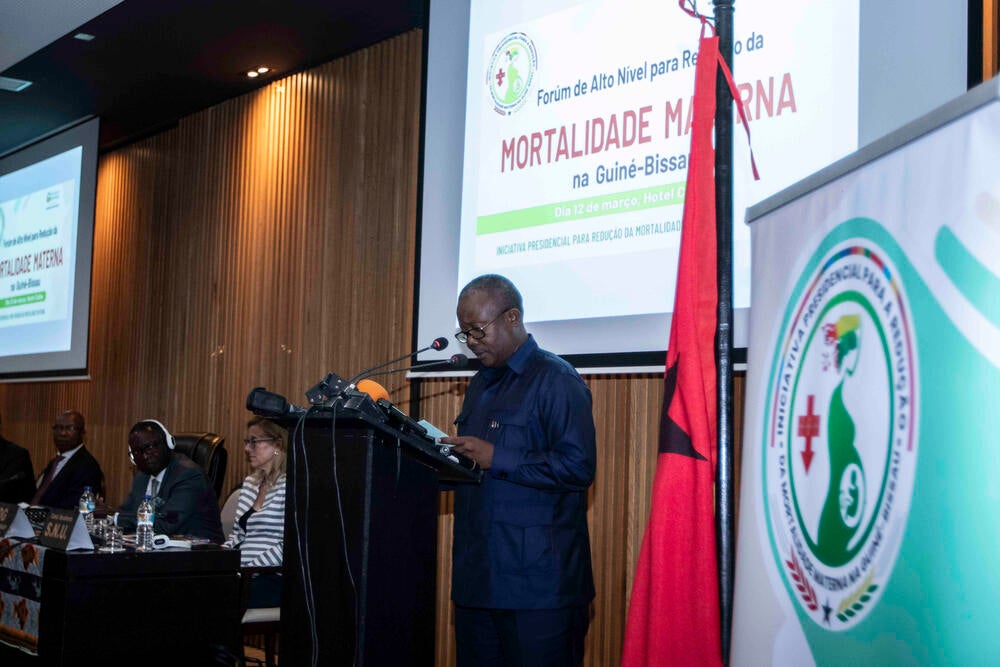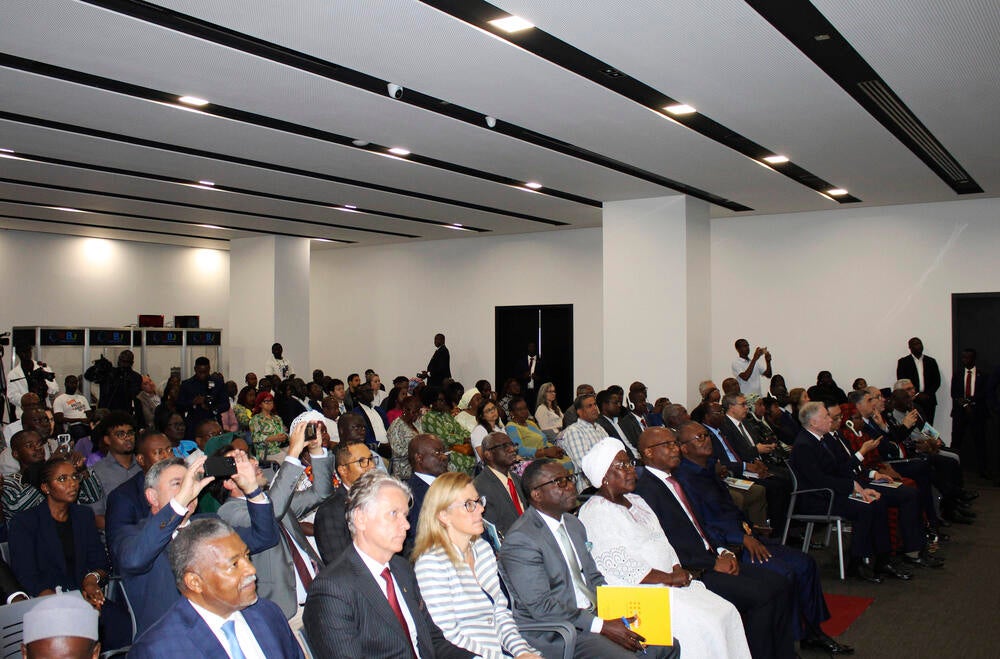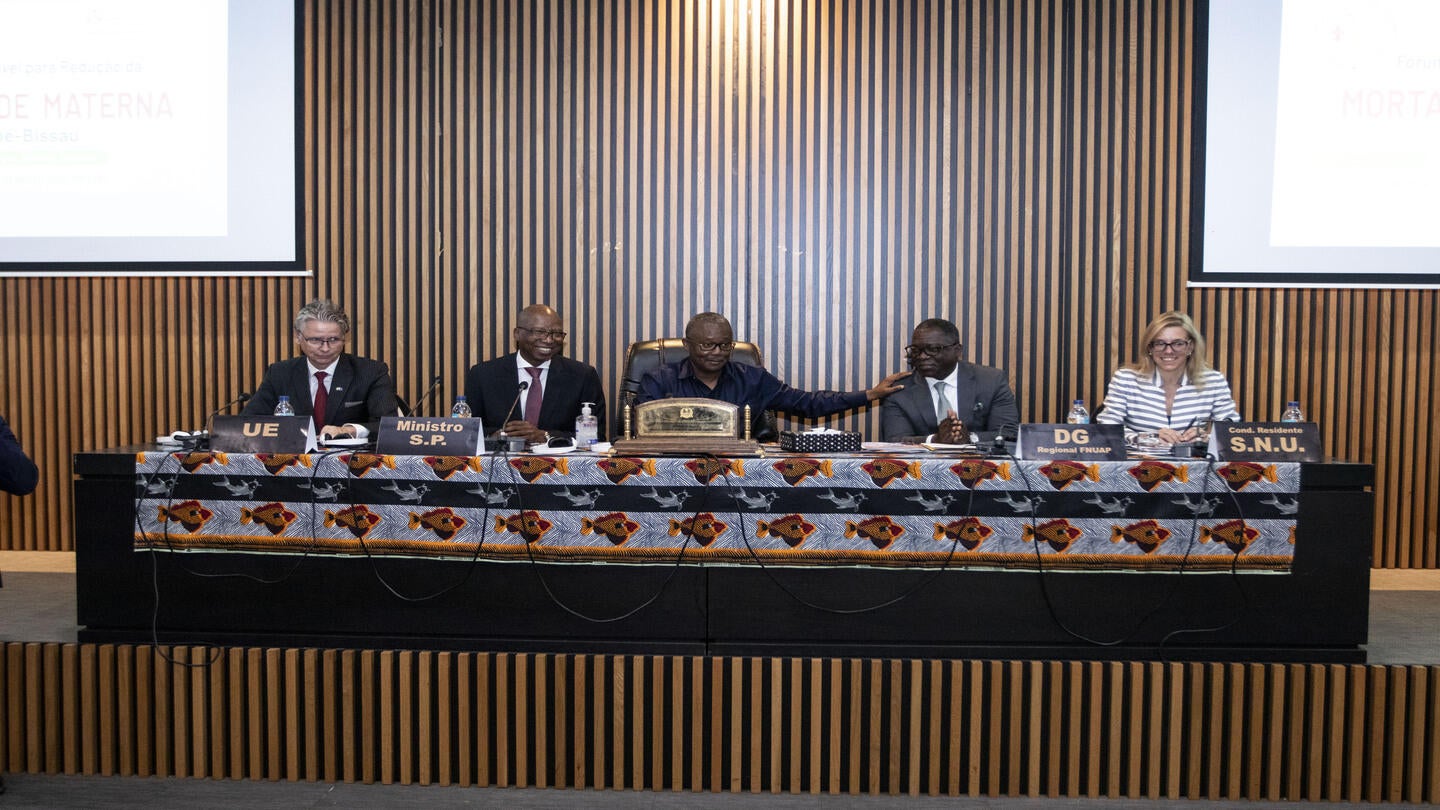Bissau, 12 March 2025 – The Government of Guinea-Bissau, with the steadfast support of the United Nations Population Fund (UNFPA), has officially launched the Presidential Initiative for the Reduction of Maternal Mortality, a groundbreaking commitment aimed at accelerating the elimination of preventable maternal deaths in the country. The high-level event, held in Bissau, also marked the official launch of the UNFPA Regional Roadmap for the Accelerated Reduction of Maternal Mortality in West and Central Africa (2025-2029), setting a transformative agenda for maternal health across the region.

With one of the highest maternal mortality rates in the world, Guinea-Bissau faces persistent challenges in ensuring safe pregnancies and childbirths. Despite ongoing efforts that have reduced the maternal mortality ratio from 746 to 548 deaths per 100,000 live births between 2018 and 2022, the country remains among the most burdened in West and Central Africa.
Government leadership and multi-sectoral partnerships
The Presidential Initiative is a testament to Guinea-Bissau’s strong political will to tackle maternal mortality as a national priority. The initiative will mobilize additional domestic resources, engage private sector partners, and strengthen collaborations with civil society and international organizations to drive sustainable change.
In his opening address, President of Guinea Bissau, Umaro Sissoco Embaló said: “

The Minister of Health, Pedro Tipote, also reaffirmed the government’s dedication to improving maternal and reproductive health services, stressing the urgent need for greater investments in healthcare infrastructure, human resources, and community-level interventions.
UNFPA’s Commitment to Guinea-Bissau
UNFPA has been at the forefront of efforts to improve maternal health in Guinea-Bissau, providing critical support in areas such as midwifery training, emergency obstetric care, and the distribution of life-saving reproductive health supplies. The agency has also played a key role in strengthening healthcare systems, ensuring the availability of skilled birth attendants, access to emergency obstetric care and promoting family planning services to prevent unintended pregnancies and unsafe abortions.
“In West and Central Africa, a mother dies every hour and a newborn every 17 seconds. The consequences are devastating for our entire region. In Guinea-Bissau, four newborns die every day. Four lives lost, four dreams shattered before they even had a chance to grow. Imagine the doctors, teachers and leaders we have lost before they have even taken their first steps,” said the Regional Director during the opening ceremony.

“According to our estimates, every month, around 40 women die from preventable causes related to pregnancy and childbirth in Guinea-Bissau. We must act now. We need strong political will and commitment at the highest level. That is why today we honour His Excellency President Umaro Sissoco Embaló for his courage and leadership in making maternal health a national priority in a country where everything is urgent, in a regional area with enormous economic and financial constraints,” he added.
The launch of the UNFPA Regional Roadmap for the Accelerated Reduction of Maternal Mortality in West and Central Africa (2025-2029) underscores the need for a concerted and multi-sectoral approach. The roadmap prioritizes high-impact interventions, such as improving emergency obstetric care, ensuring universal access to contraception, and addressing socio-cultural barriers that hinder women’s access to life-saving healthcare.

A call to action
As Guinea-Bissau embarks on this ambitious journey, the government, UNFPA, and all stakeholders call upon technical and financial partners, the private sector, and civil society to align their efforts and contribute to achieving the common goal of zero preventable maternal deaths.
The successful implementation of the Presidential Initiative for the Reduction of Maternal Mortality and the UNFPA Regional Roadmap will not only save lives but also enhance the country’s broader development objectives by ensuring healthier families and communities.


